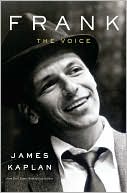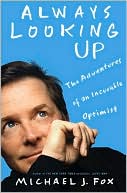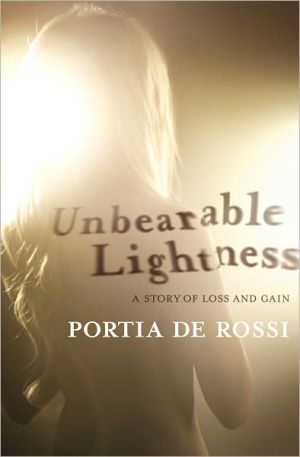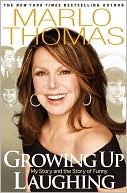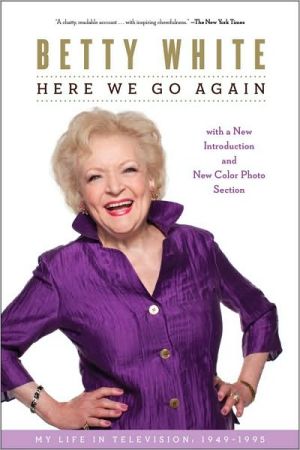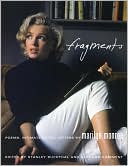Just Lucky I Guess: A Memoir of Sorts
Well, hello, Dolly!\ Carol Channing, one of America's most beloved and enduring theatrical legends, takes on her most challenging role yet: as the author of this funny, ribald, and moving memoir.\ Known across the nation for her portrayal of the irresistible Dolly Levi, the title character of the Broadway musical phenomenon, Hello, Dolly!, Carol Channing is perhaps the only living theatrical star whose name brings a smile to the face of people in virtually every city and town across America...
Search in google:
Well, hello, Dolly!Carol Channing, one of America's most beloved and enduring theatrical legends, takes on her most challenging role yet: as the author of this funny, ribald, and moving memoir. Known across the nation for her portrayal of the irresistible Dolly Levi, the title character of the Broadway musical phenomenon, Hello, Dolly!, Carol Channing is perhaps the only living theatrical star whose name brings a smile to the face of people in virtually every city and town across America and Canada, to say nothing of London, Melbourne, and Sydney. Her performance as the droll and leggy Lorelei Lee in the Broadway version of Gentlemen Prefer Blondes made her a star and launched a career that has spanned over fifty years and has included a number of Broadway plays, many television appearances, and two movies, including Thoroughly Modern Millie, for which she was nominated for an Academy Award. Capping them all, of course, was her Tony award-winning signature performance as the irrepressible Dolly.Conversational in style, and written entirely by Miss Channing, this star-studded chronicle gives you the feeling that you are sitting down with this fascinating woman and having her delight you with tales from her long and amazing life, both personal and professional. You'll be invited behind the scenes for stories featuring an all-star cast of celebrities such as Marilyn Monroe, Barbra Streisand, Ethel Merman, Mary Martin, Tallulah Bankhead, Gower Champion, Clint Eastwood, Julie Andrews, Marlene Dietrich, David Merrick, Noël Coward, Al Pacino, and Yul Brynner. And you'll learn of the not-so-glamorous times, too, as Miss Channing reveals hertheatrical triumphs, her heritage, and her winning battle with ovarian cancer. Through it all, Carol Channing — the real star of this story — demonstrates with wit and candor how she kept up her spirits and forged fearlessly ahead. From the first page to its triumphant conclusion — and including many never-before-seen photographs — Just Lucky I Guess is perhaps Miss Carol Channing's most engaging performance yet. Publishers Weekly Broadway's original Lorelei Lee and Dolly Levi recounts her charmed life, making her success sound like the perfectly normal outcome for a nearly six-foot-tall girl who used to deliver the Christian Science Monitor to San Francisco back stages. A veritable platter of patter, her memoir is laced with off-the-cuff openings like "Now, do you want to know..." and "Let me tell you..." Famous names are not dropped as much as unavoidably run into as Channing-now 81-charts the events of her life, such as the process of mounting Gentlemen Prefer Blondes with composer Jule Styne, lyricist Leo Robin, writer Anita Loos, actress Tallulah "Talloo" Bankhead, composer Richard Rodgers and, as consultants, Alfred Lunt and Lynn Fontanne. As much as it is a memoir, Channing's book is also a valediction to her old friends, many of whom, like George Burns and Loretta Young, are gone. As she writes of their qualities, she straightforwardly tells readers what she learned from or enjoyed about them. Louis Armstrong was kind, Jimmy Durante generous and Barbra Streisand admirable, despite having peeved Channing by "kidnapping" her "baby"-the role of Dolly for the movie version of Hello, Dolly! (which flopped, Channing happily adds). The mix of plainness, largesse and purpose doesn't make for the most scintillating memoir (there's not much about her marriages, for example), but that seems true to the persona and perhaps to the person herself. Chatty and colorful, it's like having Channing as the only guest on an afternoon talk show-a big treat for the right person. Photos not seen by PW. Agent, Mel Berger. (Oct. 15) Forecast: A lengthy piece by Liz Smith in the New York Post earlier this summer started the buzz going on this title. It's been picked up by the Stage & Screen Book Club as a main selection, and the InsightOut Book Club has chosen it as an alternate. Copyright 2002 Cahners Business Information.
from Just Lucky I Guess\ Tallulah Bankhead and I had the same birthday. Also, we were both born at 8:30 at night, only she was in Alabama and I was in Washington State, so there had to be a three-hour time discrepancy. The difference of the year we were born she utterly ignored.\ As I've told you, Tallulah was the first actress to appear on the cover of Time magazine. I was the second, we surmised. At least we were the only two we remembered. In those days Time put only world leaders, politicians, financial figures, sports champions, that sort of thing on its cover. Today it often has performers, but at the time we were quite tickled with ourselves.\ Later we appeared at the Time magazine celebration party for all the people who had been on the cover. This was before I met Charles, so I came alone. It was hosted by Henry Luce, who personally met all the guests, and Clare Boothe Luce, who was the warmest, most devastatingly feminine lady ever...and pretty! Well, we all knew that from her pictures. But she was laughing for some unknown reason as she stood at the door of the Waldorf's Grand Ballroom greeting her guests. I looked behind me; there was no one, so I decided t'was I. I couldn't stop laughing with her; she was so contagious. It was indeed I she was laughing at, I found out, but she never told me and we celebrated our first meeting right there. This was just after the Blondes opening.\ I've often asked, and especially after meeting Mrs. Luce, "Why are pretty girls almost always so sweet and friendly?" Finally, after I met Charles years later, I got an answer. "Because you're not in competition with them." And do you know, I married him anyway after that? Well, I thought it was funny then.\ There were place cards at the dinner tables for us all, with four at each table. I had Donald Budge, the great tennis champion, on my left; Cardinal Spellman in his little costume on my right; and across from me was Jean Kerr, the finest comedy book writer, to me, since Clarence Day or Woody Allen. I knew, of course, the name Don Budge, but Tommy Tune and I think it's a tennis course and possibly a golf court that he played on. So I couldn't ask him, "What did you win, Mr. Budge, and when and where?" You see, by the time everyone concerned with a Broadway show gets it to look as if it could be a hit, they have no idea what Donald Budge or even O. J. Simpson ever did.\ I tried to talk with Cardinal Spellman, but Betty Beale, at the table behind me, whispered, "He's known for being extremely taciturn." She was right. He never ever answered me. So finally Jean Kerr said to him hopefully, "I met the Pope." It got a nod of his head. But it didn't trigger any mutual acquaintance whatsoever. The cardinal never said a word, not even to a devout Catholic like Jean.\ Well! Talloo and I celebrated all the birthdays we could together. She took home the booze, I took home the birthday cakes, and I looked it, but most women think themselves to be overweight I found out. The first mutual birthday party was when I was one of twenty unknowns in Lend an Ear running in Los Angeles and she was also in Hollywood to finish the movie Lifeboat. Out of Lifeboat came the oft-told story of what to do about her not wearing any panties under that mink coat. They didn't know which department's problem it was. Who was going to tell her? Makeup, Hair, or Wardrobe?\ At another mutual birthday she informed me, "Listen, dahling, everybody great was born on our birthday. Franklin Roosevelt was born on our birthday." (No, he was one day earlier.) "Julius Caesar was born on our birthday." (How could she have known that?) "Napoleon Bonaparte" (now I knew this was all what she preferred to believe) "was born on our birthday."\ Me: And Eddie Cantor.\ Talloo (thundering): Oh, now you've completely destroyed my point! Don't interrupt me. Napoleon, even Jesus Christ almighty was born on our birthday, and don't let those Romannnnnn...calendars fool you.\ Another very important element Tallulah and I had in common: Richard Maney. He was always her personal publicist. My father used to point out to my mother and me, when I was in junior high school, "That takes courage to offer the press the whole truth of an episode with which someone is trying to blackmail Tallulah."\ I remember the newspapers said her secretary, who made out her checks, had Tallulah sign them and then added hundreds of dollars in front of the figures after that.\ When she was discovered, the secretary tried to blackmail her boss with incidents Tallulah didn't want made public. No newspaper mentioned anything she tried to use for blackmail. That had to be Dick Maney at work. His charisma, like my father's, was enormous. As I said in my introduction, This is my book, so I can write anything I want to. If it's annoying you're free to skip it. If it's not annoying to you, then you might as well go along with me that everybody great was like my father, okay?\ Again, Dick Maney and my father were molded out of the same clay, cut from the same cloth, wallowing in the enjoyment of their self-earned education that had opened them up to the big, wide, wonderful world of poetry, essays, and the onomatopoeia of the English language.\ My third meeting with Tallulah was when we were both guests on the Jimmy Durante TV show. She, Jimmy, and I had a song together. On the day of the live broadcast she came bursting into my dressing room yelling, "Oh my God, I've got laryngitis."\ I reacted as you would have. I was perplexed and calmly said, "Well, Tallulah, who's going to know the difference?" I shouldn't have said that.\ She lunged on me. Her voice dropped two more octaves. "Can't you hear it, you fool?" She shook me. "Tell your father to pray for me. Pleeeeeeese! Do it now." It always amazed me that she knew so much about my background.\ Just then Daddy walked in. She didn't even let him take off his coat. She threw her arms around his neck and hung there like a bib. She was surprisingly small. "Oh, dear Mr. Channing, please help me. Do something! I've got laryngitis. Make it go away."\ Daddy put his arm around her and sat her down. She was like a little girl. I never saw her like that. She listened. She cried. They whispered, so I don't know just what he said. My father didn't find her eccentric at all. He seemed to know all she needed was a little understanding. We're all wired for love, and I guess Talloo needed it as much as the most starved of us. Her automatic security and sweetness with Daddy made me suddenly wonder if she wasn't in love with Dick Maney all the years of their association. She seemed to know my father well. I was happy for her. I knew she had stage fright.\ Tallulah spent a lot of the week of rehearsal for Jimmy's show saying to me, "Just because your father's a newspaperman, Dick Maney is partial to you," or "Dick was born in Seattle and so were you and he loves publicizing it." How did she know so much about me? Maybe Dick Maney.\ Anyway, she did a terrific Durante show. I don't know, as I said, what Daddy and Talloo talked about, but she wanted me to be with her for her opening night of Noël Coward's Private Lives on Broadway. She sent me into the audience to watch her perform Noël's character Amanda and then report to her at intermission.\ "I know, but dahling," she'd ask, "is it Amanda?"\ Me: Oh, Tallulah, this audience couldn't be happier. Why shouldn't Amanda be you? They bought their tickets to see you, and they're getting you, every nuance. They don't know Noël Coward wrote it for Gertrude Lawrence. I'm thrilled with you as Amanda, and so are they.\ She let out that terrible bleat that was her version of crying. (Some idiot must have insisted she play it like Gertrude Lawrence, the original. Why?)\ Thank you, my father, for another soul-fulfilling friendship.\ An interesting quirk of Talloo's was one that I suspect very few people have. Some people love to appear in the nude...for anything from auspicious occasions to just putting the garbage out in the hall. Sue Mengers appears to be such a person. She was the personality agent who helped put Streisand in the Hello, Dolly! movie. They don't appear in that condition in order to be lewd or even sexy. They don't seem to be showing off, either. Now Sue, for instance, is pear-shaped. I know because I spent a weekend with her at Jerry Herman's house on Fire Island. As each of Jerry's guests awakened in the morning and came into the kitchen, we would find one part or another of Sue left out in the breeze. Later, when she entered Jerry's pool, all of her was out. Many of Jerry's neighbors were around the pool watching her swim.\ They'd say: Are you in show business, honey?\ Sue: No, only sort of.\ Boys: What business are you in?\ Sue: I'm a literary agent and also a writer myself.\ Boys: Oh, what's your name, sweetie?\ Sue: Audrey Wood.\ Boys: Audrey Wood! You're a well-known name in the literary world.\ Sue: Yes.\ (Actually Audrey Wood was a great name to be conjured with in the book world, but then you knew that.)\ As plethoric as Sue's figure was, she used her pudgy little fingers in a very dainty manner, often with each of her pinkies held out. As she got slowly out of the pool and put on her cotton sweater, it was noticeable that the sweater ended where the bottoms of two soft pink cheeks peeked out. She made a few delicate efforts to pull it down in the front, but it snapped right back up again. I never met Audrey Wood, but her reputation is that of a woman of integrity and, of course, impeccable literary taste. I imagine her office being besieged by summer habitués of Fire Island and Miss Wood finally announcing: "I was never in Jerry Herman's pool. I've never even seen Fire Island. Why am I plagued by this irritating identification?" Sue must savor that thought, too.\ Sue especially enjoyed putting her little garbage pail out in the hallway of her New York apartment building each night wondering if she could make it back inside before her heavy kitchen door would close behind her nudity, leaving her locked out. One night it finally did close. She told us she had no recourse but to knock on the apartment door across the hall, which a nice young man opened. While she explained what had happened, she could see a gray-haired lady, perhaps his mother, sitting behind him. The man quickly closed his door, leaving her in the hall again. She was therefore forced to ring the elevator button. Of course the elevator had people in it, staring at her while she slowly explained to the elevator boy her labyrinthine tale.\ Jerry Herman and all of us made up the rest for her. We told her, "Of course you asked him if you could ride down with all of them to the lobby. You crossed the lobby to the concierge's desk, only to find there was no other key, so you went round with the glass revolving door to hail a cab back to your office for the other key." She cut us off because she felt we were just making fun of her. We were. I do not know if Sue's story was true or not, but I suspect most of it was. Tallulah could easily have done the same thing.\ Years later, Orry-Kelly, who created movie gowns that were works of art, was fitting me. He had a mouth full of straight pins to pin the dress on me but went right on with his steady stream of talk.\ Orry: I don't know why Tallulah does that all the time.\ Me: Does what, Orry?\ Orry: She gives these grand cocktail parties, invites the finest people, and then when she opens the door to usher them in, she's wearing a large black garden hat, a strand of pearls, and her black pumps. That is all. And, you know, it isn't pretty.\ Me: What isn't, Orry?\ Orry: It looks like an old Chinaman's mustache....It's food stained...and it's on the bias. It has a sneer.\ \ To drop two names and a place, I was first introduced to Marlene Dietrich by Tallulah in the lobby of the Desert Inn in Las Vegas. Is that a good drop? However, what usually happens when I'm with two celebrities is they're so entranced with one another, they leave me with nothing to do but count the diamonds in my bracelet while I pretend to be happy. Does that happen to you, too? I'm invisible in a three-way conversation. Not with you would I be. We're only invisible when we're in between two Greek gods, even though they're both dear, kind people, as vulnerable as you and I. Have you found that? Let's not dwell on it. That's their problem, not ours.\ My second encounter with Marlene was when her daughter, Maria Riva, was playing in Chicago at the Drury Lane Theatre and I was in Wonderful Town at the Shubert. I met Maria in 1949 on the Milton Berle TV show. We've enjoyed a heavenly friendship ever since. Maria and I made a date to meet Mama Marlene after our shows. Dietrich was arriving on the Twentieth Century Limited train and was to go straight to her old hangout Gibby's Bar and Grill in Shubert Alley to meet her daughter.\ Prior to Mama's arrival, Maria and I were trying to save a table for the three of us. The circus was also in town. Two members of its audience sat down with us uninvited saying, "Ain't you Maria Riva?" and "You're not Carol Channing!" Stupidly I said, "I'm not?" I wasn't thinking because I was trying to figure out how to keep the seat ready for La Dietrich. They were firmly immovable. So I beckoned Maria to come with me to the bar to the safety of the Wonderful Town chorus (now called the ensemble). A touring company is like a family. We're protective of one another. Just as they were squeezing to make room for us, the two circus attendees were on our tails.\ Maria and I ran back to our table, dragging two chorus members to sit with us. Too late! The two civilians sat down just before us and almost got in a verbal fight with the ensemble. They went on asking Maria and me questions until Dietrich appeared. She came straight to our table, and stood to dictate to us: "Maria, you sit here. Carol, you sit there. I will sit in this chair, and you two, out." They ran like bunnies. It was as simple as that. Sprung and leaping with fright over Mama is what they were. Will Maria and I ever garner that kind of respect from two beer-guzzling strangers?\ Marlene, lowering her famous heavy eyelids, said to the waiting waiter, "The usual." It arrived almost immediately...little squares of assorted cheeses. She started in without bothering with any grand greetings, or even small greetings, to her daughter, yet they seemed to me to be so close they didn't have to bother with that rot. She'd come from L.A. by train, it had to have been a while since they saw each other, but Maria appeared securely and contentedly used to this. Good.\ Even though the cheeses were in very small squares, from the first bite on Marlene had rapid-fire bite-bite-bite-bite-bites with only her front teeth, like a rabbit. It was startling, she made no attempt to hide it. I realized she didn't have any back teeth. She must have had them pulled after Der blaue Engel. She was, by the way, dynamite in The Blue Angel, her first movie from Berlin that Americans know of. It's what caused all the Sturm und Drang about Dietrich. Through her then round face and unstudied brunette hair came waves of concentrated thoughts of sex, with no seeming awareness of her own face or body at all, only cleanly mental hypnosis and an underlying good nature that must have disappeared with the teeth. She was powerful in that subtitled movie. Over my lifetime, for one, unforgettable. Until she came to Hollywood, she was the only human being before or since her who had a healthy, joy-of-living energy underneath relaxed, sinful sex. At least she made sex seem sinful.\ See, what angers me is there is a stock European female sexpot. To Americans they seem phony, because in comparison we're steak fed and athletic and usually unaware of ourselves. These European dime a dozens are mysterious, silent, thin, more of a presence than human beings -- faces in the passing train. Utterly no sense of humor, especially about themselves. But Dietrich in Blue Angel was far from ordinary, like those women. I read in Maria's biography of her mother that Josef von Sternberg was stipulated in her contract to be her only director in Hollywood. He made her a walking Hurrell still photo.\ Remember Hurrell? He was great, but he made all his subjects look alike when they were important enough to have their own individual dynamics. He made them all look as if they had no back teeth and no interest in anyone but themselves. Oh well, I'm mad at von Sternberg. He had an assembly-line mind, and Marlene did not. I'm mad because such a talent shouldn't have handed herself over to someone else. This is probably the answer to why brilliant minds like Barbara Walters say, "Never mix business with sex." Instinctively I agree. The man you're attracted to is the man who owns you. Dangerous when it comes to your work. Your work is you, with no other influences. Your boss or director can order you around all he wants. You can follow him implicitly provided you're not in love with him.\ Well, according to Maria, von Sternberg and Dietrich was one hot affair for years. The moment he went back to Germany she became the one and only great Dietrich, not a second Garbo, not a second anybody, I thought. There was a scene with John Wayne in a Hollywood movie of her descending a stairway in a white-and-gold Navy officer's uniform and cap, all her hair scooped up under the cap, one hand in her pocket, and John Wayne laughing at her. Maria told me that scene was made while Wayne had made up his mind he was not going to let her get into bed with him. She never made it. She was at top pitch, pulling every color of herself out on camera, but looking at him. Wow! It's true. Don't dissipate the attraction off camera or offstage. The audience gets the impact instead. On second thought, how should I know? I never had an affair. I keep telling myself the deep grooves of Puritanism in me surely have some payoff.\ So! One night in Vegas, Lucille Ball and Desi Arnaz brought Dietrich to the show. I prayed to do her accurately. That was before I found out the last person to know what your victim is like is the victim herself. There were seven boys doing me in Vegas at the time, all acting exactly alike, with not one tiny thing that resembled me, I felt. However, George Burns laughed his head off at them. All I could see on a couple of them was five o'clock shadow, but how come they all assumed exactly the same weird mannerisms? Then I knew anyone who knows what he himself acts like is totally phony and therefore a bloody bore. Well, even Dietrich, whose greatest creation was herself, didn't really know how she looked and sounded when she did what she did. She was busy thinking great thoughts, though, or we women wouldn't all have worn men's pantsuits for the first time in history hoping we looked something like her. I did, anyway, wear men's suits...hoping...something like...maybe.\ Oh! Lucy, Desi, and Marlene! I forgot. So I did George's Dietrich number, ending with "you dunderblitzen dummkopf (spotlight man)" (you see, I rehearsed him to keep moving it off her). I got up off the floor and explained to the audience (as me) that the great lady herself was in the audience and would the spotlight man please move my spot to her. He did. Where we knew she was sitting before was an empty chair! She was nowhere to be found. The maître d' said she didn't pass him on her way out, that she must have gone down the laundry chute. Even Lucy and Desi didn't see her leave, and they were sitting with her. Lots of national press came that night to see her reaction. They caught up with her at the Desert Inn, where she announced, "They don't want stars anymore in Las Vegas -- only this cheap clop-throp like Carol Channing."\ After finishing my act I was in misery over her. Charles said he was leaving to get the press back. "Just keep crying like that and don't stop." I, of course, couldn't stop. It was a reaction to being nervous about her, and why wouldn't I be? She's not a barrel of laughs about other people's acts to begin with, let alone that she herself should emerge as laughable to an audience. He returned saying, "This is the best thing that could have happened to you. The more questions the press asks her, the madder she gets." Her remarks went all over the world. The immortal Hirschfeld did a brilliant caricature of Dietrich and me facing forward, seated on twin wooden Blue Angel chairs, the only difference being our faces. It was blown up in The New York Times the very next Sunday. Charles was right. Mary Martin told me she was in Siam when our interviews were in the International Herald Tribune. I was not aware that I was that well-known at the time, but I was now!\ The press asked Dietrich if she thought some of the lines were funny, like asking a man at the first table to come back to her dressing room for "a little Schnitzel à la Holstein mit an egg on the top? Hah? We'll talk about you for a while. How did you like my performance?" It was all very true to her nature and the audience knew it, but it obviously fell on her ears and eyes with a dull Teutonic thud. Noël Coward, her dear friend, for a while, told me I dropped twenty pounds as I turned into her, and he said my facial bone structure became fragile. "It was extremely accurate," he said. Yes. That's show business. That's our job.\ But wait! Desi and Lucy came backstage to scold me. Lucy said, "Oh, Carol, you don't have fun with icons like that. It's almost sacrilege." So this noble speech to me was in deference to their friendship. You see, Marlene had made it her business to become Lucy's and Desi's closest family friend. Whoever the top names -- "Papa" Hemingway, Noël, Jean Gabin, Yul, Orson Welles -- were at the time, she glued herself to them, for only as long as they were at the very top! And do you know, in two weeks Lucy was doing Dietrich on her I Love Lucy TV show? Talk about sacrilegious! She must have been laughing at the idea while she was scolding me. Then she did me! I was so pleased to be done by an attractive, feminine woman for the first time. It's always these bass-voiced laryngitic men, as I say. It makes one wonder if one has a glandular imbalance of some sort that no one ventures to tell one about. However, the last line of Lucy's sketch on me was "Oh, officer, I didn't mean any harm."\ Officer: Harm? Look what you just did to Marlene Dietrich and Carol Channing.\ I love being grouped with Marlene Dietrich and Lucille Ball. Nice company, don't you think?
\ Publishers WeeklyBroadway's original Lorelei Lee and Dolly Levi recounts her charmed life, making her success sound like the perfectly normal outcome for a nearly six-foot-tall girl who used to deliver the Christian Science Monitor to San Francisco back stages. A veritable platter of patter, her memoir is laced with off-the-cuff openings like "Now, do you want to know..." and "Let me tell you..." Famous names are not dropped as much as unavoidably run into as Channing-now 81-charts the events of her life, such as the process of mounting Gentlemen Prefer Blondes with composer Jule Styne, lyricist Leo Robin, writer Anita Loos, actress Tallulah "Talloo" Bankhead, composer Richard Rodgers and, as consultants, Alfred Lunt and Lynn Fontanne. As much as it is a memoir, Channing's book is also a valediction to her old friends, many of whom, like George Burns and Loretta Young, are gone. As she writes of their qualities, she straightforwardly tells readers what she learned from or enjoyed about them. Louis Armstrong was kind, Jimmy Durante generous and Barbra Streisand admirable, despite having peeved Channing by "kidnapping" her "baby"-the role of Dolly for the movie version of Hello, Dolly! (which flopped, Channing happily adds). The mix of plainness, largesse and purpose doesn't make for the most scintillating memoir (there's not much about her marriages, for example), but that seems true to the persona and perhaps to the person herself. Chatty and colorful, it's like having Channing as the only guest on an afternoon talk show-a big treat for the right person. Photos not seen by PW. Agent, Mel Berger. (Oct. 15) Forecast: A lengthy piece by Liz Smith in the New York Post earlier this summer started the buzz going on this title. It's been picked up by the Stage & Screen Book Club as a main selection, and the InsightOut Book Club has chosen it as an alternate. Copyright 2002 Cahners Business Information.\ \ \ \ \ Library JournalJust like having a coffee break with the star. Copyright 2002 Cahners Business Information.\ \ \ Kirkus ReviewsBuoyant showbiz autobiography by the irrepressible star of Hello, Dolly! \ Daughter of a Seattle newspaperman who encouraged her singing, Channing grew up the only child in a tight-knit family. Popular at school, she was a talented mimic and stage ham from a tender age. Although she has frequently played ditzy dames, she had the benefit of a college education (at Bennington), then did a quick (and not entirely successful) turn as a Borscht Belt actress before heading to Broadway. She starred in numerous stage productions and films over a career that lasted half a century and is best known for her roles in Broadway’s Gentlemen Prefer Blondes and Hello, Dolly! Her movie and TV work were somewhat more limited, although she won an Oscar nomination for her performance in Thoroughly Modern Millie and has appeared on myriad variety shows. This first literary effort by Channing will not disappoint readers looking for backstage gossip or celebrity anecdotes. The author seems to have known everyone worth knowing in American show business of the 1940s, ’50s, and ’60s, from Frank Sinatra to Marlon Brando, and she was intimate with the families of Presidents Kennedy and Johnson, particularly Lady Bird. During LBJ’s 1964 election campaign, a supportive Channing even donated her talents and her theme song, which became "Hello, Lyndon." Channing’s appeal has always been that of a lovable fruitcake, and she wisely chooses to tell her story in her own words, rather than employ a ghostwriter or an "as told to" technique. As a result, the prose gets a bit lumpy at times, but the author’s warmth and quirky personality generally rescue the proceedings. As the title suggests, Channing feels blessed by hersuccess, and her humility and willingness to laugh at herself are evident on almost every page.\ Despite some secrets told out of school and a bit of playful dishing, this winning memoir is for the most part a cheery repast chocked with celebrity tidbits.\ \ \

